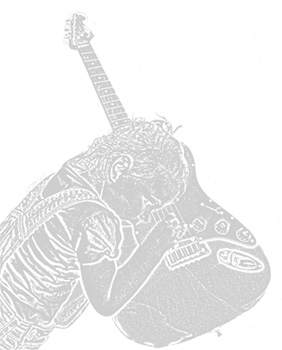
Projects
In addition to the maintenance and the necessary repairs of my own instruments, a friend's guitar or amp from someone else is treated quite occasionally.
In practice, this concerns the somewhat older copies with a "past". I think the best approach is to start by disassembling everything carefully. In the meantime you can inspect every part and you will get an idea of the requirements and the actions that you have to take. All parts are individually arranged in trays and then checked one by one and immediately cleaned.
Then comes the moment of assembly, everything is carefully put back together. Mechanics are cleared of any play and greased, the frets replaced / updated where necessary, potentiometers checked and injected etc. etc. etc. Finally, everything is adjusted to the owner's wishes. We try as much as possible to keep everything original, but with the aim of creating a usable instrument, preferably better than new at the time. This approach means that you are busy for a long time, you will lose 8 to 12 hours per object as long as you do not encounter strange things.
Tip: "Shooting" a lot of photos in the meantime (especially of the wiring) makes it easier to check how everything was originally put back together.
The pictures below show some work on own equipment and some temporary guests.
|
A G&L SC-3 with the so-called MFD pickups. Under the "dirt" was something beautiful . . . |
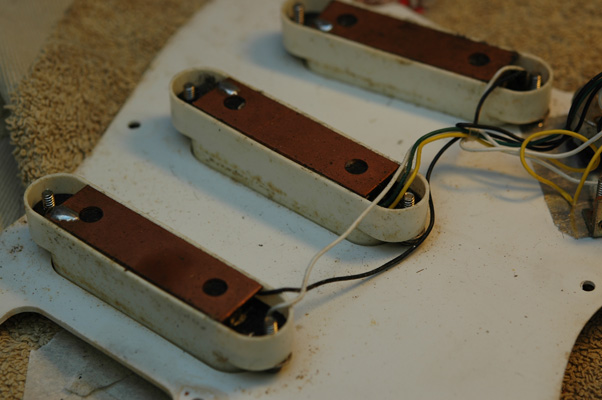 |
|
Fender Musicmaster bass. Four strings, but standard equipped with an element designed for a six-stringed instrument. A plastic cap over the element conceals this chosen solution. |
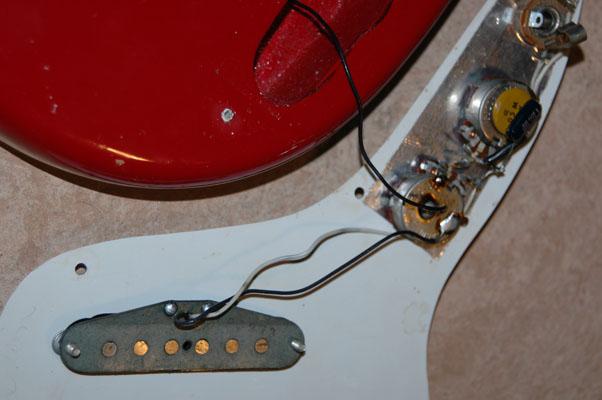 |
|
Checking and replacing the electronics is not so much. Unless it is a semi-acoustic copy where you have to disassemble everything via the F-holes. . . . . .but must also put back again. |
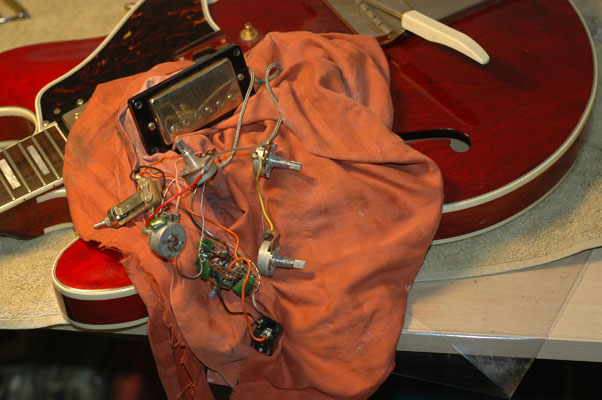 |
| Stratocaster clone by Ibanez from the 1970s. | 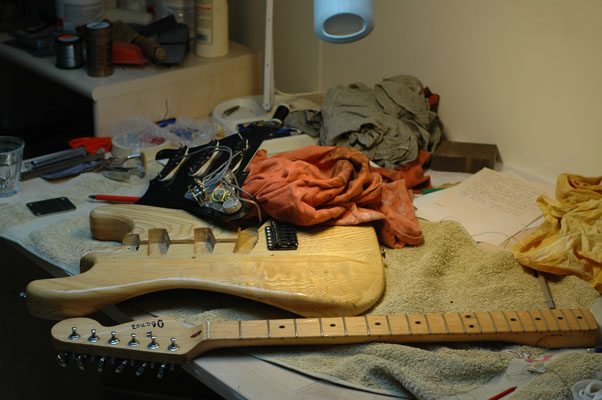 |
| Repair of the nut of a Squier Bullet. | 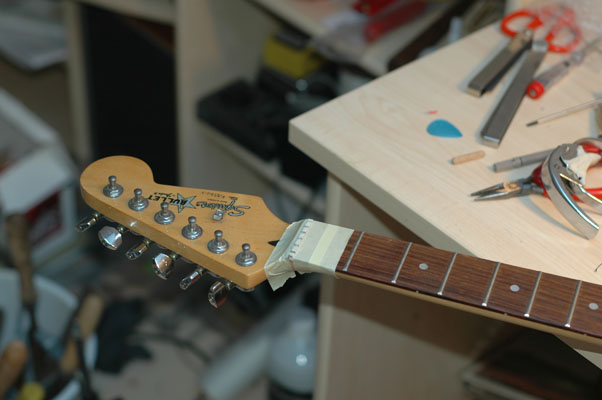 |
|
"Timing" a new violin for my daughter. Tricky that I can't play the violin myself, however. . . . . . I once understood that Leo Fender couldn't play the guitar himself.
But, what does a violin actually do on a guitar site? |
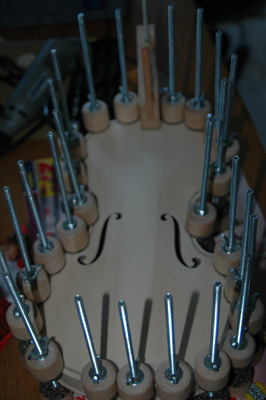 |
| Who recognizes a Kent I (Hagstrom) from the 1960s? | 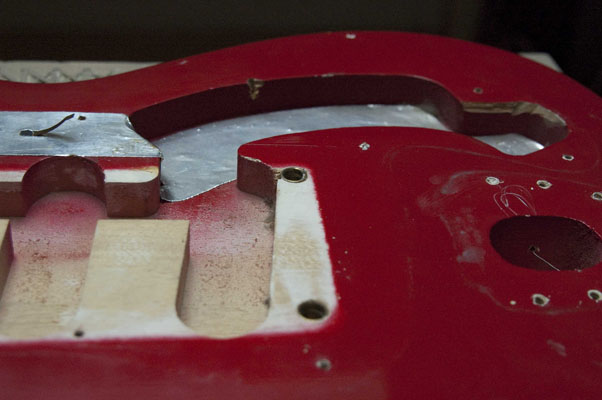 |
| Mustang body with the scar of a former humbucker. | 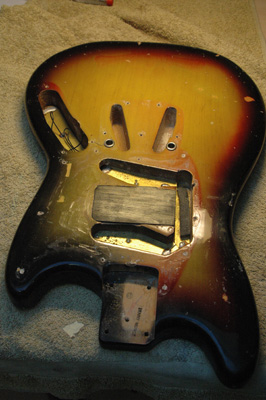 |
|
A 60's "Hagstrom I" under construction. The wooden body is covered with a kind of vinyl.
|
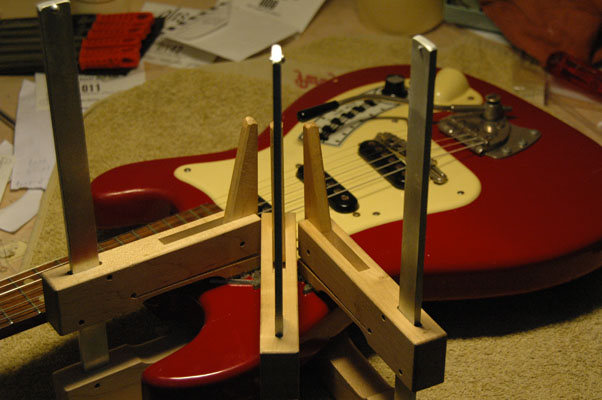 |
|
The Strat comes standard with a rotary switch at the bottom rotary knob instead of a tone potentiometer. The knobs are gold plated. |
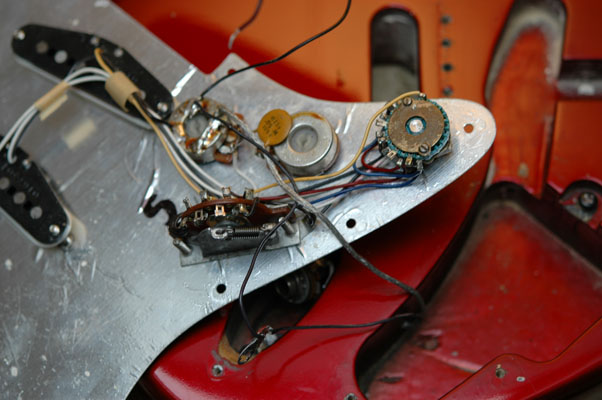 |
|
A 90's Stratocaster neck with "damage". The neck is again provided with frets and lacquer. |
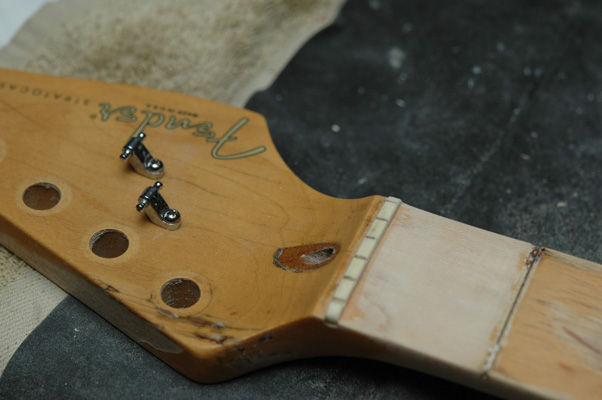 |
| Replacing a circuit board with a "Paul Reed Smith" switch. | 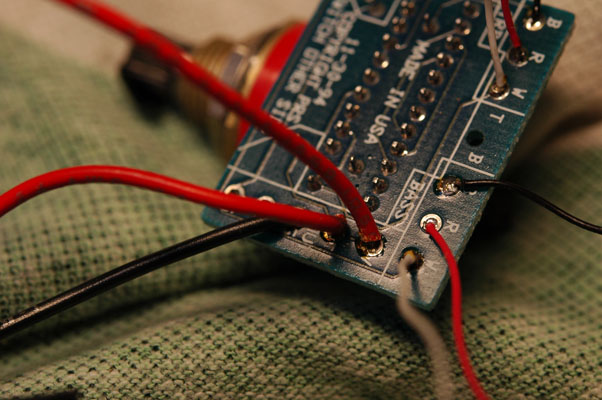 |
| "Unplayable" Dobro clone" on the workbench. | 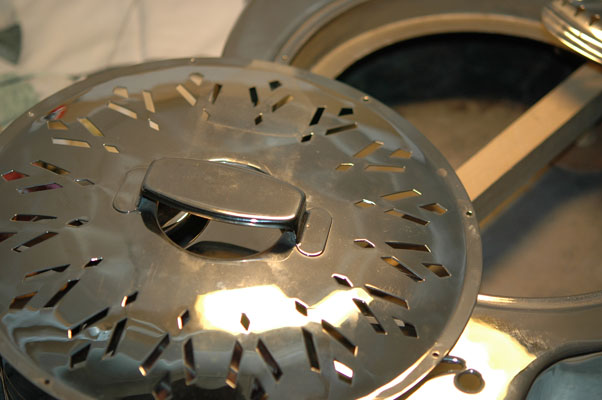 |
| Cracks in the body of a Fender Stratocaster. | 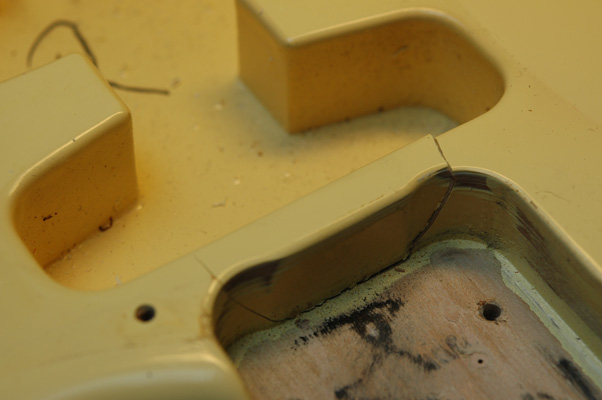 |
| A fret from an "Epiphone Les Paul" that came up spontaneously. | 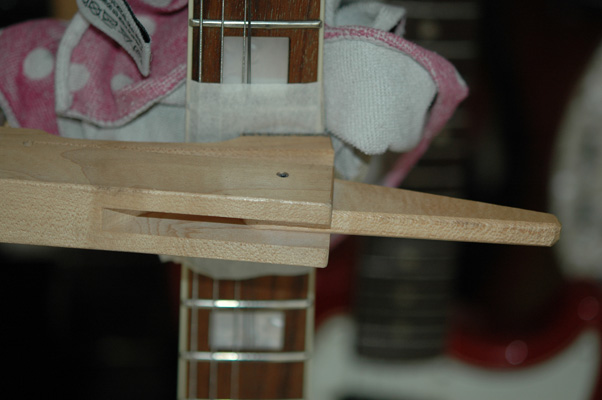 |
| An old Japanese Les Paul replica that should be playable and above all rattle-free. | 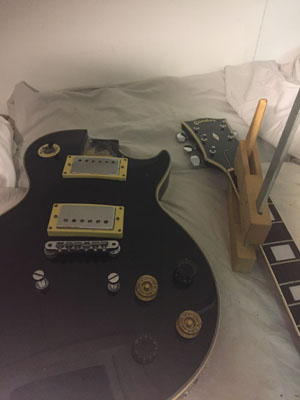 |
| A cracked pickguard from a Fender Stratocaster is actually replaced this way. | 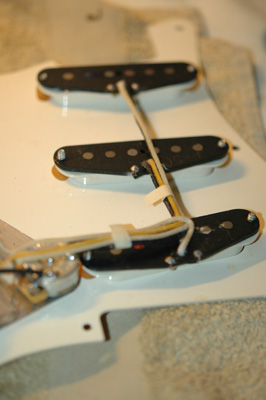 |
| The neck of a BC-Rich after a rough past. | 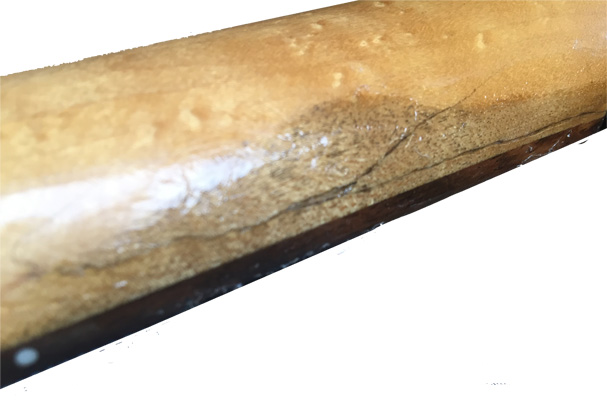 |
|
A Japanese Stratocaster clone that needed some attention. Beautiful how the white color has yellowed over the years. |
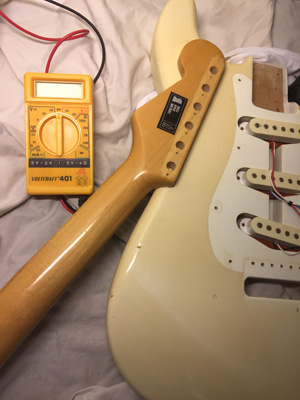 |
|
Mother of Pearl inlay in the headstock of an acoustic guitar. The cutout for this is made with a Dremel and a small router. The nut is a one-piece "bone". |
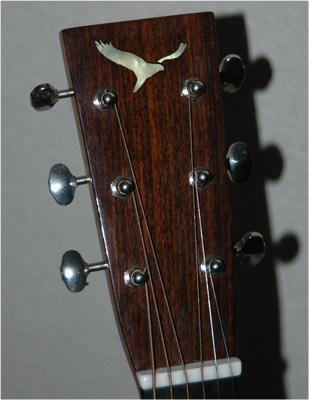 |
|
Fender Champion lap steel. The same element and knobs were also used in the Telecaster / Broadcaster from that period. They were often "borrowed" over the years to serve in a guitar. |
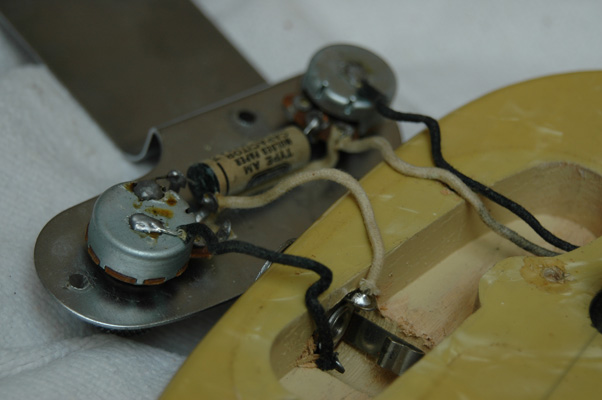 |
| Pre-CBS Fender Duo Sonic. | 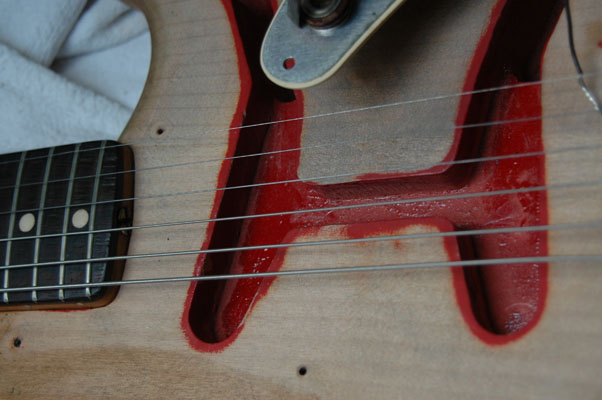 |
|
Fender Stratocaster 1974. The discolouration of the (red) paint is also clearly visible here. |
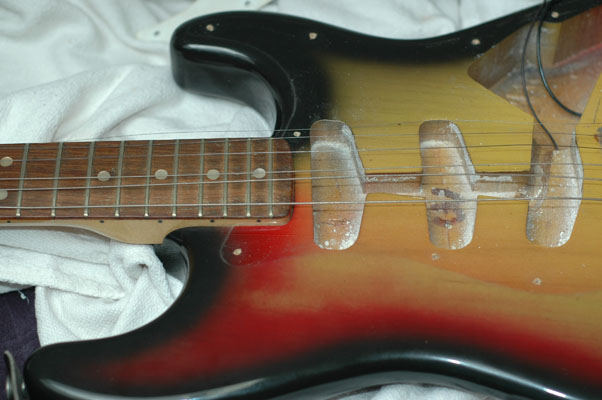 |
|
Kahler bridge that once marred a '77 Fender Stratocaster. Everything has now been "restored" and the bridge has been given a new lease of life elsewhere. |
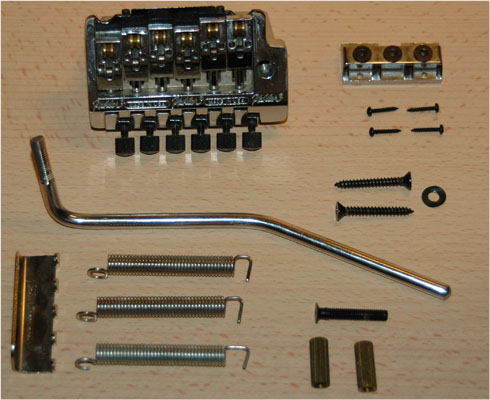 |
| G&L ASAT | 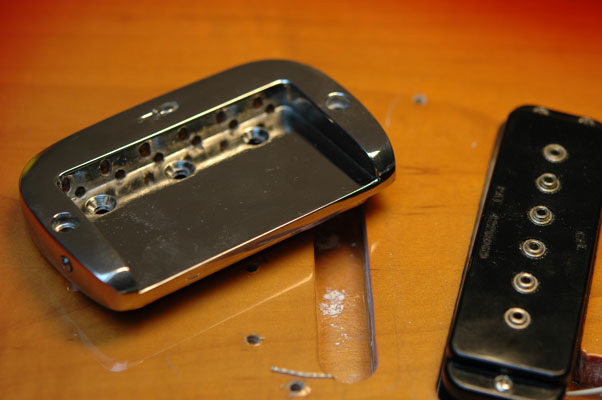 |
| Project: "birthday cake". Thank you Marike. | 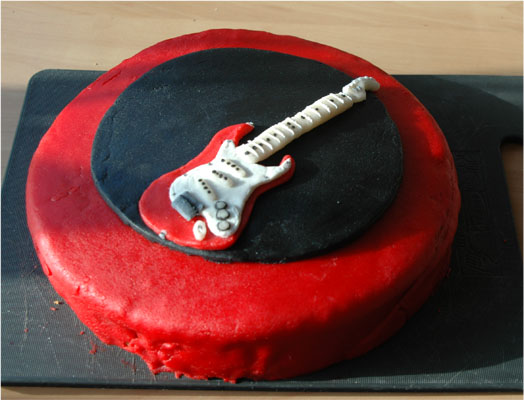 |
| A Fender Telecaster Anniversary with gold-plated hardware. | 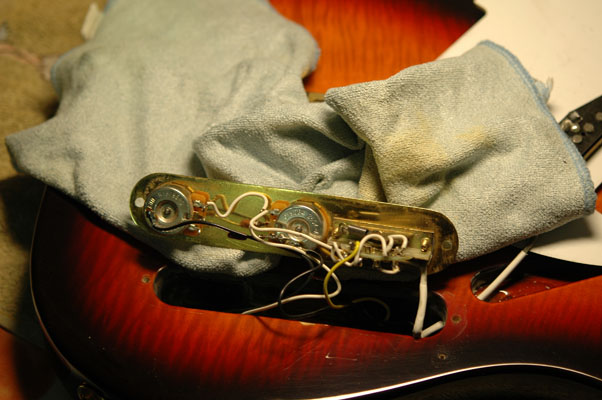 |
| G&L Legacy. | 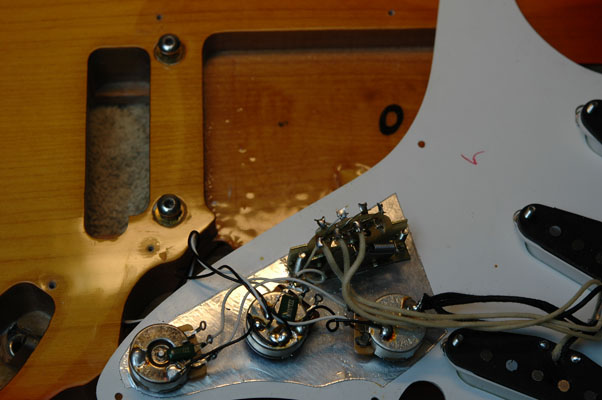 |
| A broken coil on the primary side of the reverb unit explains why an amplifier's reverb no longer functions. | 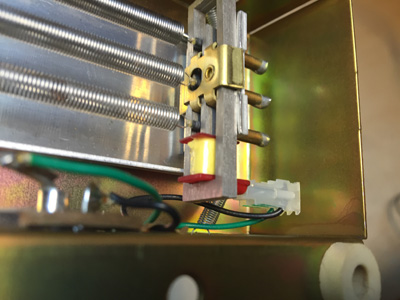 |
|
Not a project, but just a nice touch after the performance of The Fabulous Thunderbirds In the early 1980s, the guitarist threw the plectrum he had played with that evening into the audience. So it was only one copy and I had no idea where that thing had gotten into the crowd. A few weeks later I run into a former classmate who says: Jimmie Lee is the brother of Stevie Ray. |
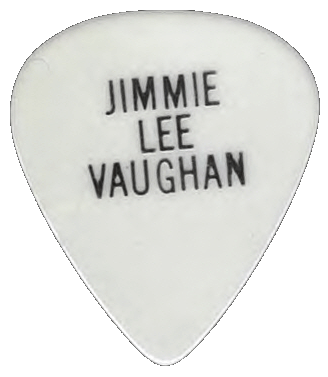 |
|
I came across a few original EL34 tubes (6CA7) from Siemens in the cabinet. Now an amplifier as a project in which they can prove their service. Wonder what the quality of these pipes will be compared to what is offered today. |
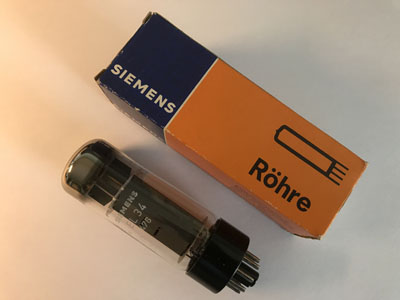 |
|
And now for something completely different . . .
A Martin alto saxophone from 1925. Hand built USA (Elkhart - Indiana). |
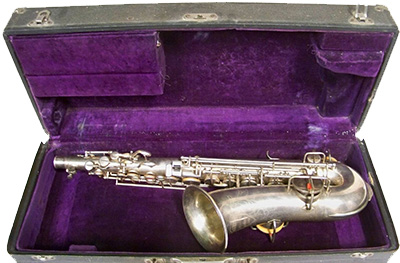 |

